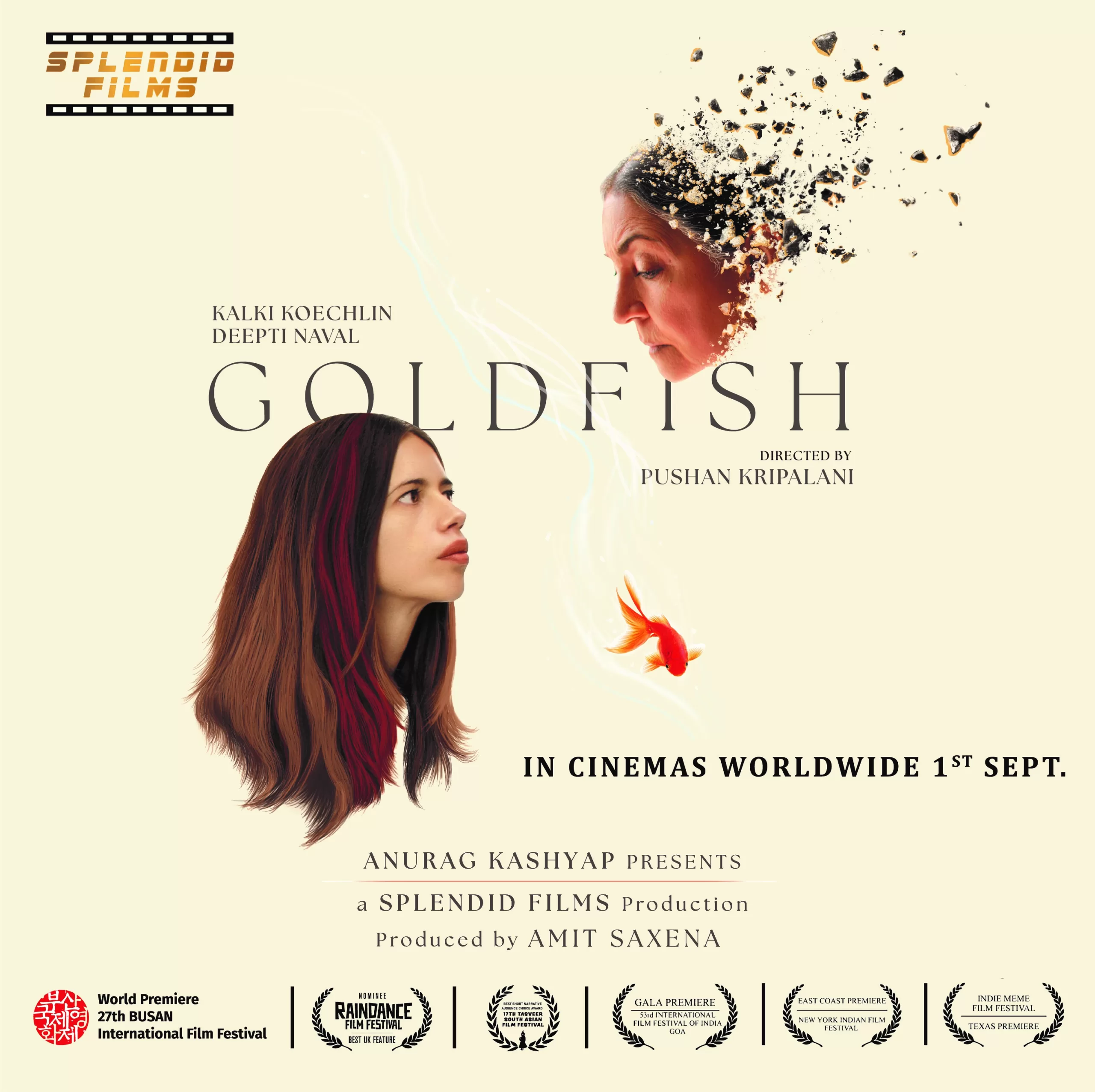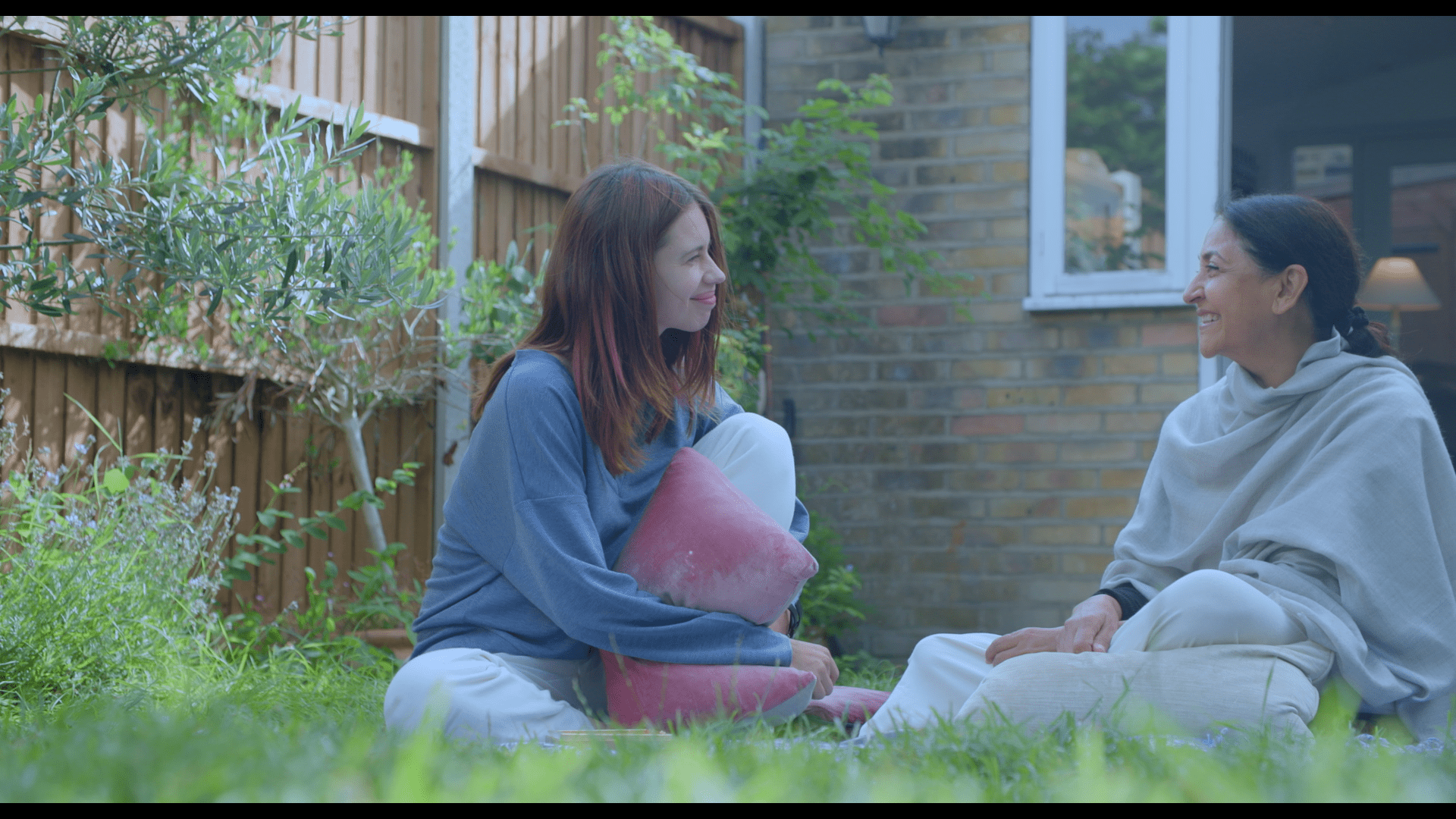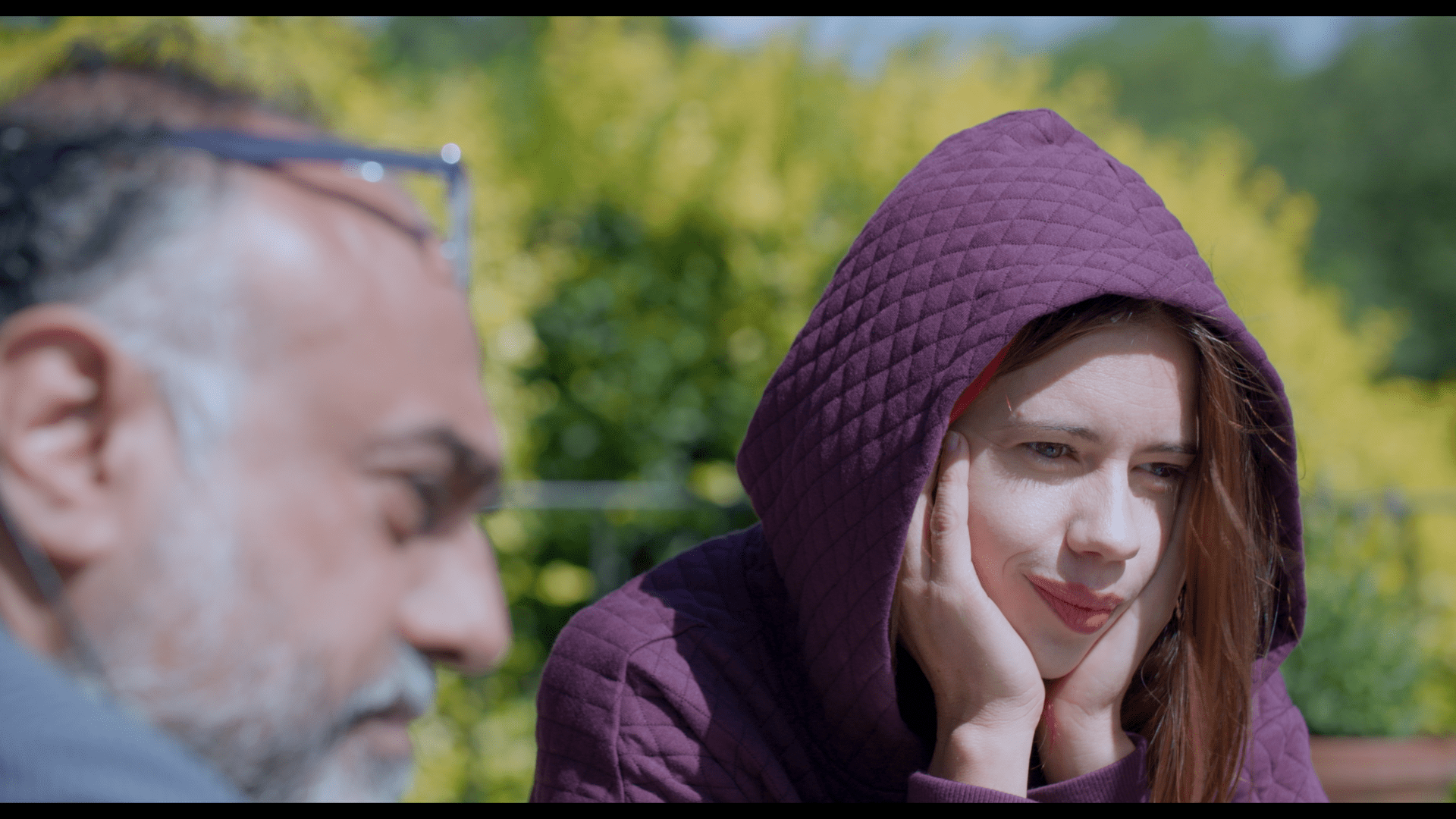By Athira Raj
From the moment Goldfish starts, it is clear that the film is going to explore the themes of love, loss and home, and how love and loss reside within home. It starts with a letter to a father; Kalki’s voice echoes across the theatre. But the idea of home is constantly put into question in this dramatic and poignant tale of a daughter (Kalki Koechlin) coming back to her childhood neighbourhood to take care of her dementia-struck mother (Deepti Naval). Is it possible to make a place, ridden with unsettling and painful memories, a home?

It is established from the very beginning that the two share a fraught relationship and their conflict is the central focus in the film. Kalki Koechlin plays Anamika, or Miku, as her mother calls her, who is caught in a tug between escaping the hold of her childhood trauma and staying back to take care of a mother, whose memory is slipping. Along with the dialogues, it’s her body language that stands out, conveying the emotional weight of the situation and capturing the anxieties of a daughter perfectly. It’s hard caring for a parent who alienated you as a child. It’s easy to not dote on Kalki’s character in the start, with her harsh attitude towards her own mother, but as the story progresses, the reason becomes palpable.
Kalki’s voice echoing through the theatre as the screen goes blank, you can feel the agony of her character’s conscience, torn up between missing her father and resenting her mother. Her choice to leave the home proves to be transformative for her as she tries to rediscover herself outside of her mother. Her partner teaching her how to ride a bike is a loving start to healing her scars. Even after coming back to her mother, her desire is to find resolution in the past and do what’s best for the both of them. It proves to be hard; nonetheless, she learns to accept it.

The story doesn’t let us antagonise the mother altogether; Deepti Naval’s portrayal of Sadhana is remarkable in bringing sensitivity to the idea of motherhood. She is set in her ways and does not show any remorse for the past. Her relationships with the neighbour who’s been her friend for thirty years, the man from the corner shop, the retired neighbours who look after her in her old age, is refreshing and kinder than the one she shared with her daughter. There’s abandonment, from both sides, and the film forces these characters to confront their relationship dynamics as well as their past. Between the ebb and flow of Sadhana’s memory, we watch her in her most vulnerable points and it makes us empathise with her. We are made to acknowledge that she might have not chosen motherhood and ended up resenting her daughter for it. She’s grappling to hold on to the sense of control in her life as pieces of her memory fade away.
Goldfish is named in reference to a goldfish’s memory, that barely lasts beyond a few seconds, but it also ties to a key event in the mother-daughter relationship. Anamika’s recollection of some unpleasant memories from her childhood is how we understand what defines their dynamic. The discomfort of the memory of Anamika’s pet Goldfish, and whether or not it was dead or alive when Sadhana flushed it down the toilet to teach her a lesson, permeates through the screen. And yet, moments after such heavy scenes, there are bouts of light humour that doesn’t allow the film to fall into the monotony of the genre of such films. While navigating the love and loss theme, the film keeps us engaged with the twists and in anticipation of the resolution to whether Anamika will stay or leave Sadhana at the care home.

Deepti Naval and Kalki Koechlin’s stellar performance is earnest and their journey from resentment to forgiveness moves you. One feels drawn to even the supporting cast of Bharti Patel, Shanaya Rafat, Gordon Warnecke, Ravin J Ganatra, and the extended cameo by Rajit Kapur. Pushan Kripalani brought his excellent theatre vision to his story and set—the shift from soulful Hindustani music in the background to the constant beeping of the smoke detector, and the heaviness of the silences in between. Produced by Amit Saxena and presented by Anurag Kashyap, Goldfish is an excellent tale of the human condition at its core. What are we if not our memories? Goldfish turns that idea on its head by building the story’s foundation and the characters’ relationship with each other on fading memories of the past.


